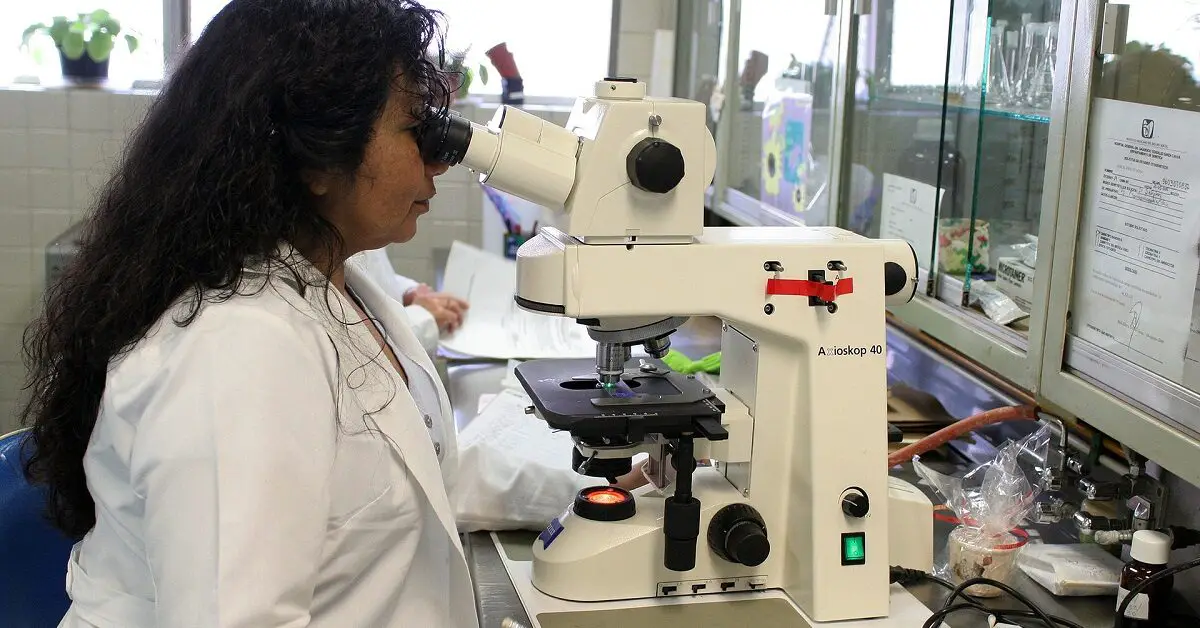
Multiple Sclerosis (MS) is a disease of the central nervous system that affects both men and women, but this article will focus on the symptoms of MS in women.
One reason we need to learn about the symptoms of MS in women is that studies show MS is more common in women than in men.
In multiple sclerosis, the immune system attacks the myelin sheaths that protect the nerve fibers of the brain and spinal cord, causing damage. The resulting damage disrupts the ability of the CNS (made up of the brain and spinal cord) to transmit controlling signals to the rest of the body.
Myelin sheaths protect the nerve cells. They also allow the cells to transmit electrical signals faster and more efficiently. MS damage causes electrical signals from the brain to other parts of the body to travel slower, disrupting the ability of the brain to communicate effectively and efficiently with the rest of the body.
Many of the symptoms associated with MS are due to the disruption of the signaling functions of the nerve fibers due to MS-related damage.
20 symptoms of MS women need to know

Symptoms of MS vary from one patient to the other. No two individuals have the same pattern of symptoms. One patient might experience only a few of the known symptoms of the disease, while another might experience several.
About 2.5 million people worldwide and nearly 1 million people in the U.S. are living with MS. Studies indicate the disease is three times more common in women than in men.
Generally, it causes a wide range of distressing physical and mental symptoms.
There are different types of MS, including relapsing-remitting MS (RRMS), secondary progressive MS (SPMS), and primary-progressive MS (PPMS). In the relapsing-remitting form, patients experience flare-ups followed by periods of remission during which they experience little or no symptoms (refer to YouTube video above).
There is a gradual onset in patients with PPMS. It then progresses steadily, leading to deterioration in health and quality of life.
The symptoms of MS in women are generally the same as in men. So readers should keep in mind that most of the symptoms in women listed in this article also apply to men. However, there are some differences in women due to hormonal changes related to functions such as pregnancy and menstrual periods.
3 early symptoms of MS in women
1. Loss of sensation, numbness, and tingling
Loss of sensation, tingling, or numbness is an early symptoms of MS in women. These symptoms are often the first that patients report before they are diagnosed with the illness.
Numbness and tingling occur in many parts of the body, including the arms, legs, trunk, and face. Numbness is mild in some cases, but it could also be severe. The symptoms will sometimes recede and disappear without treatment.
2. MS hug or dysesthesia
The symptom is also one of the earliest that patients experience. Patients experience a squeezing sensation around the trunk. The squeeze feels like the pressure of the cuff of a blood pressure measuring device.
3. Vision disturbances
Vision disturbances are among the earliest symptoms of MS that women report.
Vision problems develop due to damage to the optic nerves. The conditions called optic neuritis and neuromyelitis optica involve inflammation (swelling) and damage to the optic nerves that transmit signals from the eyes to the brain.
Sight disturbances due to MS include:
- Temporary loss of vision in one eye.
- Blurred vision
- Poor color vision or inability to detect contrast.
- Double vision
- Pain when moving the eyes
- Dark spots in the field of vision
Less common symptoms of MS in women

4. Speech, voice, and language disorder
Speech, voice, and language disorders (dysarthria) are less common symptoms of MS. Speech problems, such as slurring, and dysphonia (loss of speech volume), occur in about 25-40% of patients.
Some patients also experience stuttering. Dysarthria often involves slow speech and slurring due to the weakness of the muscles of lips, cheeks, and mouth used for speaking.
5. Swallowing difficulties
Swallowing difficulties, known as dysphagia, are another less common symptoms of MS. A meta-analysis by Alizera Aghaz and colleagues that used several sources and methods estimated the prevalence of swallowing difficulties in patients variously at 43.33%, 37.21%, and 58.47%.
Swalllowing difficulties occur due to damage to nerves controlling the muscles of the mouth and throat involved in swallowing. The damage causes weakness and poor coordination of the relevant muscles leading to problems with chewing and swallowing.
It can occur at any stage of the disease but it is seen more commonly in the advanced stages.
Symptoms also include choking sensations and a sensation of having food stuck in the throat.
6. Taste dysfunction
About 25% of MS patients complain about a diminished sense of taste (hypogeusia), according to the National MS Society.
Richard Doty and colleagues reported that taste dysfunction in patients is associated with brain lesions.
Fun facts: Reduced ability to taste sweet, bitter, salty, or sour things is known medically as hypogeusia. While the total loss of sense of taste is called Ageusia.
7. Tremor
According to Marcus Koch and colleagues, tremor occur in an estimated 25% to 60% of patients. It can present as uncontrollable shaking in various parts of the body.
Types of tremors that occur in patients include intention tremor. Intention tremor occurs when the patient reaches for something or tries to place a hand or foot in a precise spot.
Other types of tremor inlcude resting and postural tremor.
Tremors can be severe enough to make daily activities, such as dressing, eating, and drinking difficult. Visible tremor can also casue social embarassment.
The symptom results from damage to specific nerve pathways that coordinate movement.
8. Seizures
About 2-5% of MS patients experience seizures, compared with about 3 percent of the general population.
Epilepsy is also more common among patients than the general population, with a 2-3% prevalence rate, Najafi and colleagues reported.
9. Respiratory dysfunction
Breathing problems or respiratory dysfunction is a less common symptom of MS.
Some patients experience breathing or respiratory difficulties due to the weakening of the chest and abdominal muscles involved in ventilation. This means that the patient struggles with inhaling and exhaling.
Breathing difficulties most commonly occur during the advanced stages of the disease and can lead to respiratory failure, Tzelepis and McCool reported.
Breathing problems can also result in speech difficulties, sleep disorders, and lung problems.
10. Hearing Loss
About 6% of MS patients report hearing loss or impaired hearing. In rare cases, patients report hearing loss as one of the earliest symptoms of the disease.
Tekin and colleagues reported that sensorineural hearing loss (SSHL) occurs in about 4-10% of patients between relapses or remissions.
Sensorineural hearing loss happens when there is damage to the inner ear and could involve the nerve pathways from the brain to the inner ears.
More common symptoms of MS in women

11. Fatigue
Fatigue is one of the most common signs of MS and about 80 percent of patients experience fatigue.
Many sufferers also experience daytime sleepiness after a night’s rest. The daytime sleepiness could interfere with normal work and domestic activity.
MS patients may experience fatigue during the day because they slept poorly overnight. A poor night’s rest could be due to bladder trouble that disrupts sleep. Similarly, painful symptoms may disrupt sleep during the night causing fatigue, weakness, and general feelings of tiredness during the day.
Patients also experience “MS fatigue” or lassitude. This is a severe form of fatigue that may occur in the morning. It worsens as the day progresses and could interfere with normal daily activities.
12. Bowel dysfunction
Bowel dysfunction is a very common symptom of MS. Patients may experience constipation, diarrhea, and loss of control over bowels function (fecal incontinence). Again, experts believe it is due to damage to the nerves that control bowel function.
13. Bladder dysfunction
At least 80 percent of patients experience bladder issues, the National MS Society reported. Bladder problems are due to damage to nerves that control bladder functions.
Tepavcevic and colleagues reported that bladder dysfunction is one of the most common autonomic disturbances among MS patients, but it is often overlooked and undertreated.
Patients may experience symptoms such as:
- Urinary urgency due to the inability of the bladder to hold more urine.
- Urine leaks due to the inability of the bladder to hold urine
- Increased frequency of urination, especially during the night
- Delay in starting urination
- Incomplete emptying of the bladder
14. Pain
Pain is yet another common symptom of MS in women. About 55 percent of patients experience pain during the course of their illness, and about half report suffering chronic pain.
According to Sexias and colleagues, although pain syndromes are common, the causes are often not clear.
Patients generally experience varying degrees of acute or chronic pain. A study found that women are more likely than men to experience pain.
Both acute and chronic pain present variously as pins and needles, prickling, aching, and burning pain.
MS pain could be musculoskeletal pain. Neuropathic pain caused by nerve damage includes:
- Lhermitte’s sign: The pain is often compared to an electric shock spreading from the back of head, down the spine to the limbs. Patients often experience pain when they bend their neck forward, according to the National MS society.
- Trigeminal neuralgia: This is facial pain often experienced as a stabbing sensation. The pain can also be felt in the jaw area.
Patients also experience paroxysmal spasms. This refers to episodes of painful tightening of the muscles of the limbs.
Itching occurs in some patients.
15. Weakness
Weakness, including muscle weakness, is an important symptom of MS in women.
Weakness could be due to deconditioned muscles or from damage to the nerves that control muscle function in the arms, legs, and the other parts of the body.
A common feature of weakness is difficulty walking and moving around. Patients may also develop gait and balance problems due to fatigue, muscle weakness, and sensory deficit.
Studies have found that MS may have a negative effect on skeletal muscle mass and strength of the legs. Lack of exercise due to MS-induced muscle weakness could lead to physical inactivity that further worsens the weakness.
Doctors often recommend regular exercise training to counter the muscle weakness.

16. Muscle stiffness and spasms
Closely related to muscle weakness in MS patients is muscle stiffness and involuntary spasms or spasticity.
According to Hugos and colleagues, spasticity affects an estimated 60-84% of patients. The symptom can be sufficiently disabling and severe to limit daily physical activity and negatively affect the quality of patients’ lives.
Spasticity causes stiffness in the limbs, most commonly in the legs. It could manifest as tightness, resistance, and pain when patients attempt to stretch.
Muscle stiffness in the back, knees, and hips is common.
17. Dizziness and lightheadedness
Some MS patients experience lightheadedness, dizziness, faintness, unsteadiness, and a feeling of being off-balance, and vertigo.
Audiologist Julie Honaker, Ph.D, told Cleveland Clinic’s Health Essentials that vertigo and dizziness are not the same.
“It used to be that dizziness was the umbrella term and vertigo fits underneath it,” Honaker explained. “But now we’re finding that dizziness is very separate from vertigo.”
Dizziness is an “altered sensation of spatial orientation, a distortion of where we are within a space and like your balance just feels off.” However, vertigo is a sensation of “self-movement” or “movement of your sorroundings.”
Vertigo can cause nausea, vomiting, and sickness.
Experts believe vertigo in MS is caused by damage to the nerves that control the sense of stability, balance, and orientation in space.
18. Mood disorders
Mood disorders are common in MS, according to Minden.
Women with MS symptoms often present with signs of anxiety and mood disorders, including panic disorder, generalized anxiety disorder, depressive disorder, and dysthymic disorder (persistent depressive disorder), mood swings, bipolar disorder, and other emotional disturbances.
Close relatives may notice that the patient is losing interest in normal daily activities, showing signs of moodiness, dullness, sleepiness, loss of appetite, distraction, irritability, and other behavioral changes.
Clinical depression, a severe form of mood disorder, is a common symptom of MS. Depression occurs at a significantly higher rate among sufferers than the general population, including people with other chronic illnesses.
Other symptoms include disorders of affect (Minden), such as euphoria, weeping, pathological crying and laughing.
Patients may also show anger, frustration, and emotional distress.
Some of the symptoms of mood disorder could be due to the stress of living with MS. The mood issues could be distressing and challenging to members of the families of sufferers.
19. Cognitive impairment
An estimated half of individuals with MS show cognitive changes. The nature of the cognitive changes vary but may involve difficulties with processing information, perception, problem-solving, comprehension, arithmetic calculations, attention, focus, organizing, learning, and thinking.
Occassionally, cognitive issues may deteriorate into severe mental disability.
According to Nabavi and colleagues, research indicated that about 55-60% of patients suffer from cognitive impairment. Cognitive impairement is also found in children suffering from MS.
20. Sexual dysfunction
Many women with MS symptoms experience sexual dysfunction. They have difficulty getting aroused and may experience pain during sexual intercourse due to poor lubrication of the sex organ.
While some of the sexual problems patients experience could be linked to mood changes and depression, the symptoms could also be due to damage to the nerves controlling the sexual organs.
What causes MS?

The cause of MS remains unknown, but several risk factors have been proposed. The risk factors include genetics, nutrition, and environmental factors. Some experts believe that smoking and stress may be contributing factors.
However, the observation that women are more susceptible to MS has led to the suggestion that female hormones could also play a role.
Recent studies suggesting that pregnant women have a reduced risk of MS flare-ups and that flare-ups often occur soon after menstrual periods appear to support the theory that female hormones are involved.
MS expert Ellen Mowry, M.D. told Johns Hopkins Medicine that there are several reasons why experts believe sex hormones could play a role. One reason is the observation that there is less difference in the incidence of MS between boys and girls before puberty than after.
Is there a cure for MS?
While there is currently no cure for MS, researchers have developed drugs to manage the disease.
Researchers had developed drug treatments for the type of the disease known as relapsing-remitting MS (see YouTube video below), but there was no effective drug for managing the type of MS known as primary-progressive MS. However, researchers recently developed a new effective monoclonal antibody treatment for primary-progressive multiple sclerosis (PPMS).
FDA first approved the new treatment in March 2017. It was the first treatment ever approved to treat patients with PPMS (see video below for details).
The novel drug, administered to patients once every six months, does not cure MS, but it slows down its progression by targeting a type of immune cell called CD20-Positive B Cell. The drug dampens the immune response of CD20-Positive B Cells and thus reduces their ability to further attack and damage the myelin sheaths.
Vitamin D and MS
Experts believe that nutritional factors contribute to the risk of developing MS. Studies suggest that low vitamin D and vitamin D deficiency could also play role.
Vitamin D deficiency is more common among people living in the northern hemisphere than among those living closer to the equator. This has prompted researchers to investigate the possible relationship between low vitamin D levels and MS.
According to Mowry, some researchers believe that lower vitamin D levels among people with more frequent relapses of MS could be linked to the fact that they spend more time indoors and exercise less. However, researchers who believe Vitamin D could play a direct role have been investigating whether supplementation could help reduce the frequency and severity of relapses.
Studies also suggest that overweight and obesity due to excess calorie intake could also play roles, according to Mowry.
Women have higher levels of body fat than men and it could partly explain the higher incidence of MS among women, according to Mowry.
Studies have shown a link between obesity — especially belly fat — and inflammation. The increasing number of women being diagnosed with MS in recent years could be due to increasing obesity rates among women, Mowry concluded.
A note to our readers
We recommend that you talk to your healthcare provider if you believe you may have symptoms of multiple sclerosis. While this article is based on peer-reviewed studies published by reputable academic journals, information from authoritative government agencies and societies, it is meant only for informational purposes. It is not intended to take the place of professional medical advice and healthcare service.
[Featured image: Sharon McCutcheon/Unsplash]

